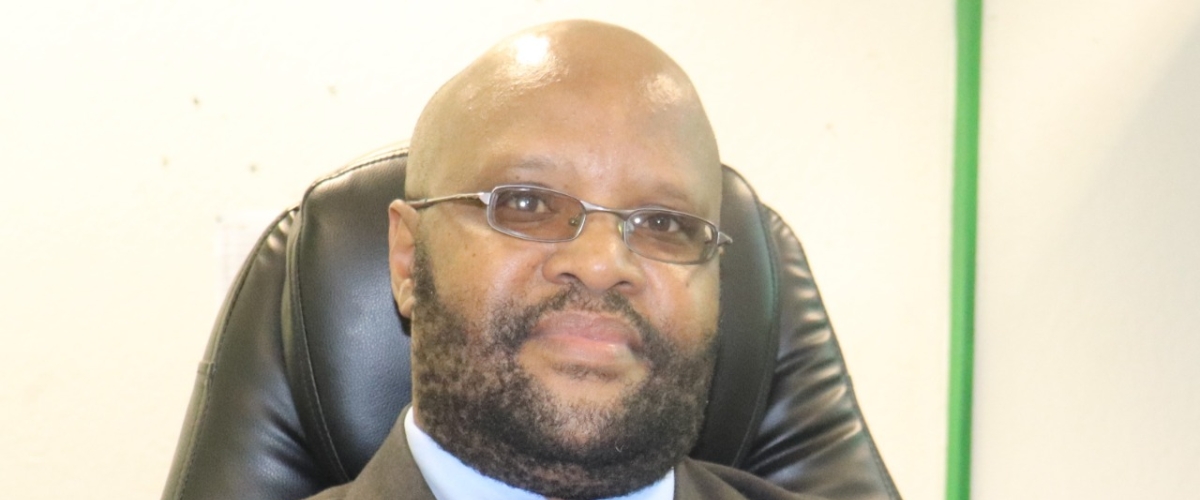
"Despite the many uncertainties that exist, we need the best possible understanding of what the future holds in order for us to harmonize the implementation of agricultural research and development in the SADC region" these were the resounding words of the CCARDESA Executive Director Dr Cliff Dlamini during his opening remarks at the SADC Futures Climate-risk Analysis and Mega-Trends Reports webinar today. As the SADC agricultural systems are likely to face several challenges in the coming years due to climate change, technical capacity for adapting plans, policies, investments and programs will be needed to address these challenges, intimated Dr Dlamini.
In responding to the human capacity challenges, Dr Dlamini was delighted to announce that CCARDESA, in partnership with the SADC Secretariat’s Food, Agriculture and Natural Resources (FANR) Directorate, the International Livestock Research Institute (ILRI) through the CGIAR Research Program on Climate Change, Agriculture and Food Security (CCAFS) and GIZ-Adaptation to Climate Change in rural areas in southern Africa(ACCRA) delivered a joint initiative with the SADC Futures programme in developing and delivering a series of training webinars on foresight, along with tailored supporting mater Dr Dlamini further said that the materials aim to equip users to practically apply a range of foresight tools and methods for innovative strategic planning and policy formulation for climate resilience. He encouraged the participants to access the materials including the online e-learning course on foresight which is available on the CCAFS and CCARDESA websites. He also thanked all the organisers for inviting him to the meeting and looked forward to furthering collaboration.
The main purpose of the meeting was to validate the findings of a study that was conducted in the SADC region in Botswana, ESwatini, Lesotho, South Africa, Mozambique and Zimbabwe. Dr Leslie Lipper from CCAFS shared the findings which showed that there is a growing population in urban areas which will lead to an increase in the workforce in 2050. Despite agriculture standing out as the largest source of employment, its contribution to the gross domestic product remains low and with most poor people depending on agriculture for food.There was a notable high level of unemployment among the youths. There were also high rates of extreme poverty, gender inequality and food insecurity, land degradation and little access to energy in a rural area in the region.
Dr Claire Quinn from the University of Leeds also shared findings from studies which assessed the vulnerability to climate change in the SADC region. The studies revealed that climate risk hotspots occur in northern Madagascar and the south-west of Tanzania. Angola, the Democratic Republic of Congo, Tanzania, Mozambique and Madagascar were found to be medium to high-risk areas. They also found a mismatch between climate risk hotspots and where research is happening on the ground.
Ms Hanna Sabass, the GIZ/ACCRA project Manager thank the presenters for the insightful presentations. She also thanked the partners who have made it possible for the SADC futures foresight trainings. Ms Sabass shared the milestone achievement of the SADC Climate Futures team of contributing to the review of the SADC Regional Indicative Strategic Plan, which has since been adopted after wide consultation with the Member States and now considers climate change as a cross-cutting issue. In parallel, the SADC Futures team is also contributing to the review of the SADC Climate Change Strategy and Action plan in the area of agriculture and seeking coordinated inputs from key stakeholders.
She urged the partners that the priority remains that of building on science and trend analysis planning as well as investments into agricultural productivity and food security. Like Dr Dlamini, she also urged the partners to make use of the foresight toolkit. She was also happy to note the strong partnerships that had been forged, jointly and together for the SADC region. She lastly thank all the partners including the SADC UNFCCC focal point persons, universities and all participants for attending the webinar. She was most grateful to the German taxpayer, who through the Federal Ministry for Economic Cooperation and Development, enabled her to implement this SADC Futures project.






